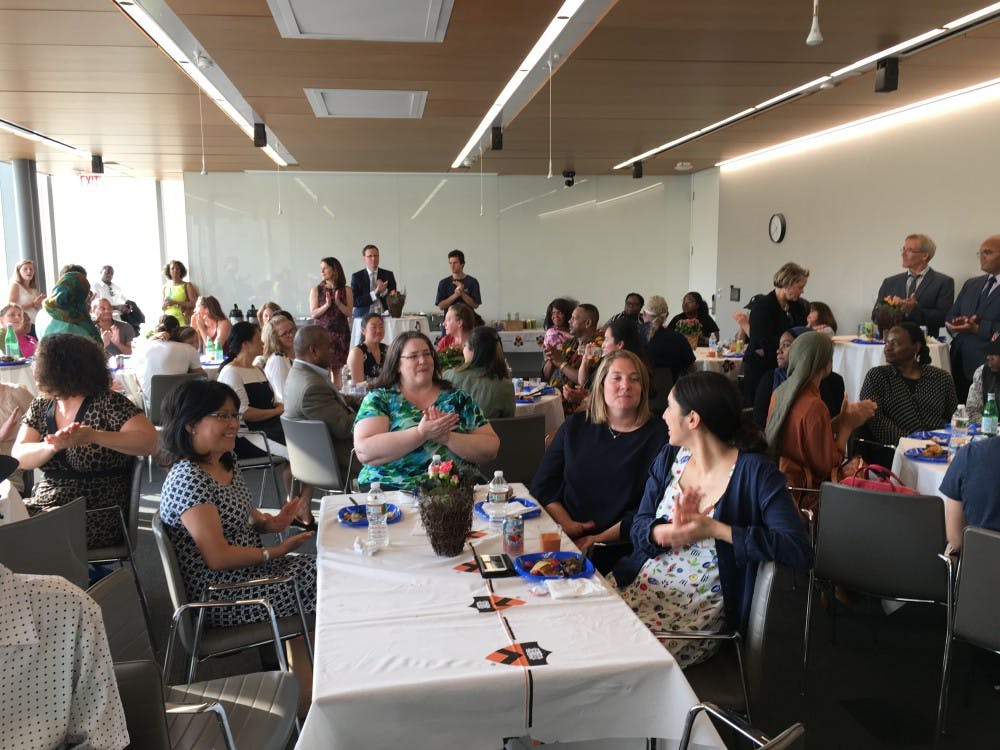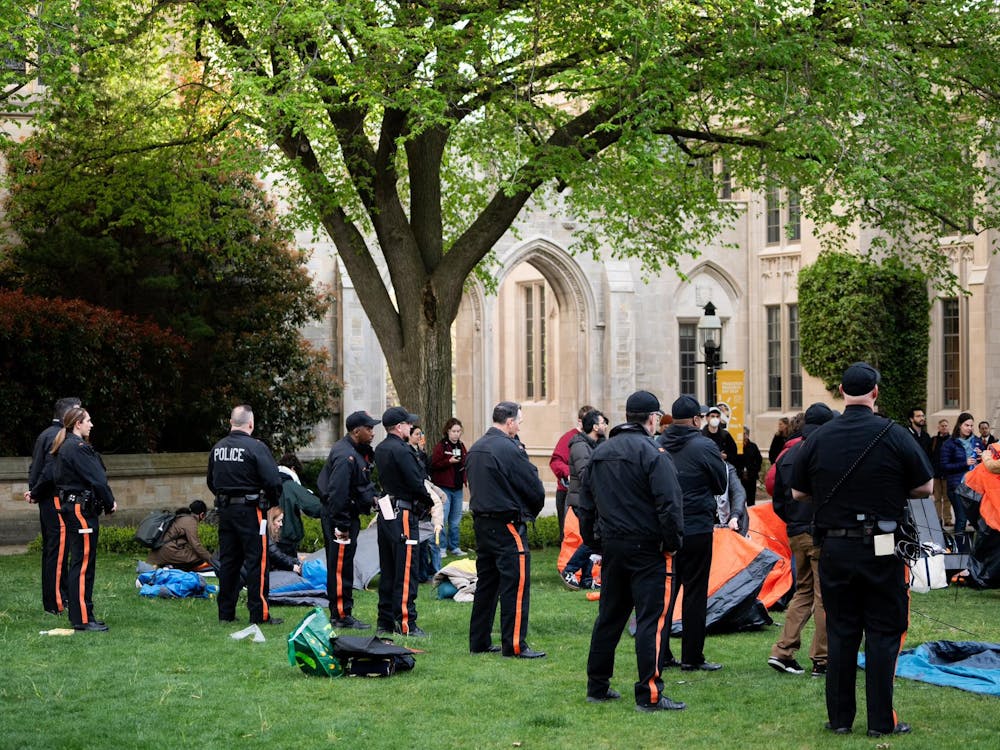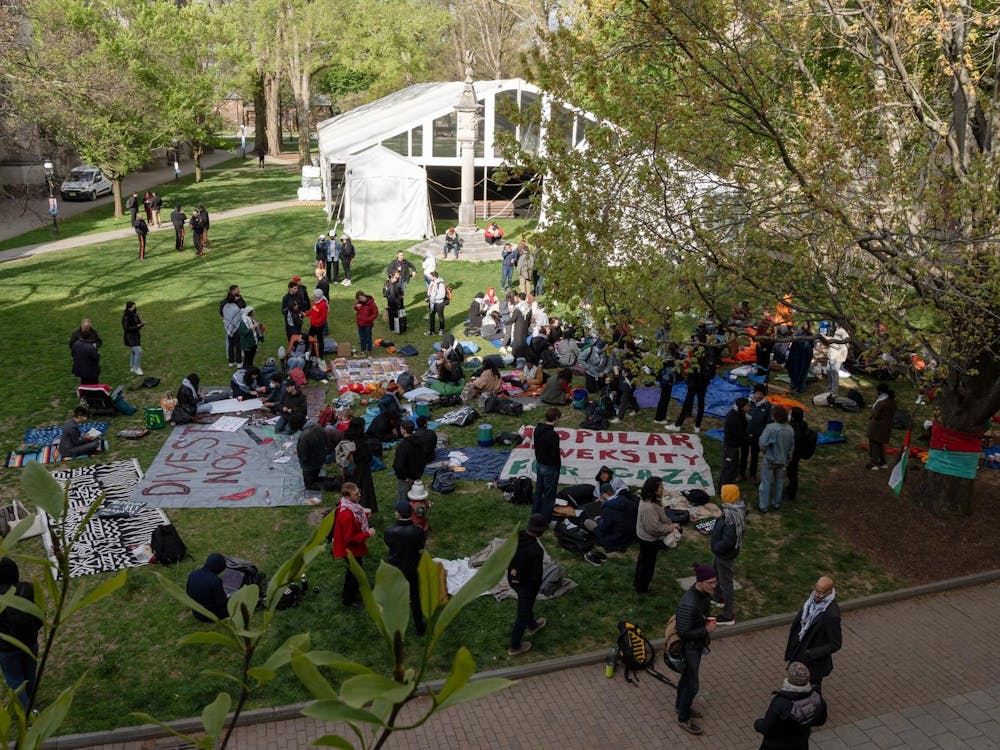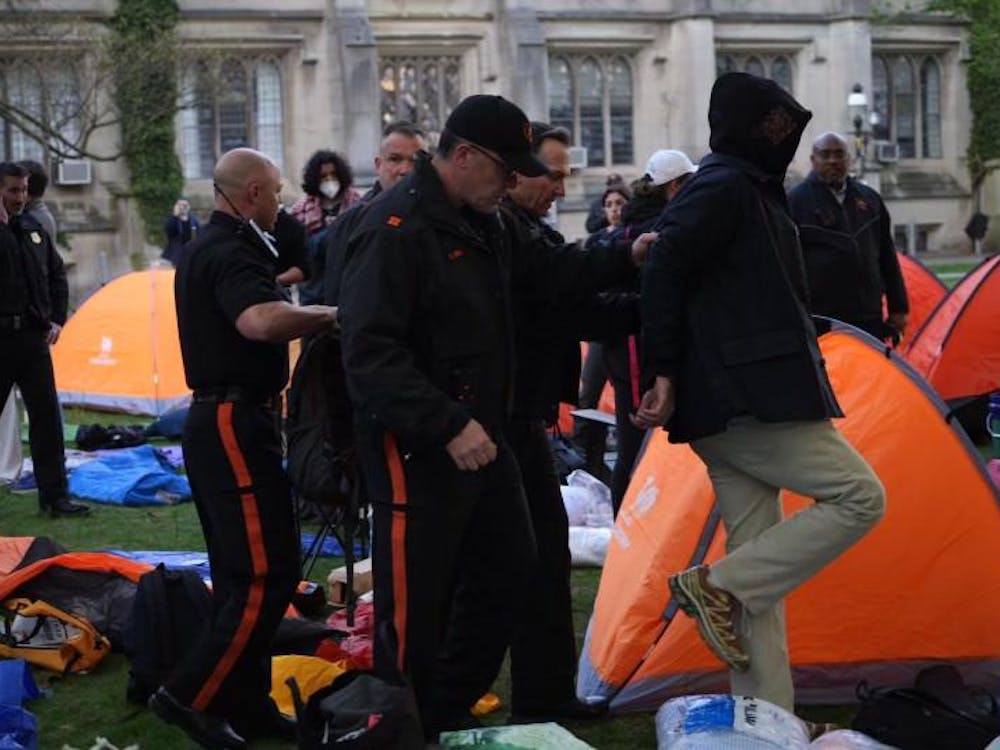Sherri Brucks works at Frist Campus Center and interacts with University students during “late meal” every day as part of her job. In spring 2018, Jonathan Haynes ’20 nominated Brucks for doing more than her job — for him, she was a “Hidden Chaplain.”
The Hidden Chaplains Initiative was launched in the fall of 2017, allowing students to recognize a member of the University community who serves as an unofficial “chaplain” for them in any number of ways.
Both the chaplain and the student who nominated them are invited to a dinner, where the Hidden Chaplain is recognized. Last year, the dinner was held on May 3, 2018, in the the Julis Romo Rabinowitz building.
Brucks recalls Kyle Berlin ’18 giving a moving speech at the dinner.
“There was not a dry eye,” Brucks said. “His speech was very touching, there was love in the room. Everybody was so happy, it was wonderful. Talking to my coworkers, it was an honor for us to be nominated by students for this.”
Associate Dean of Religious Life Matt Weiner became inspired to start the initiative while having lunch with Berlin one day at the Whitman College dining hall. Weiner noticed how the the card swiper, Catalina, greeted everyone by name with a smile. Berlin agreed, as he had known Catalina since his first year on campus, and said that people like Catalina play a vital role on campus.
“There are all of these official titles of positions, but at the end of the day, the most important human work is being done by workers who are largely not recognized,” Berlin said. “There are important material things the University can and should do to improve the lot of workers here, though this project attended to what we might call the spiritual side of things.”
Part of the project was to “investigate” what a Hidden Chaplain is, inviting different reflections and definitions from across campus. Berlin explained that one definition of a Hidden Chaplain could be “someone who is committed to being engaged, compassionately and actively with other people … listening to them and supporting them in small or large ways.”
“It is not an official position,” Berlin added. “It’s an attitude and a perspective.”
Whitman Residential College Adviser (RCA) Renee Louis ’19 echoed Berlin’s sentiments, noting that Hidden Chaplains fulfill far more than the responsibilities for which they are officially employed.
“A Hidden Chaplain, to me, is someone who takes intentional and deliberate time and effort on a regular basis to make someone else’s day better even when it is not an explicit or expected part of their job,” Louis said. “They are a consistent and positive presence in my life, even if it is usually very subtle or in the background.”
After their lunch, both Weiner and Berlin felt that people should be recognized for their remarkable impact. They thought about a way to bring the campus community closer and acknowledge University workers who have gone out of their way to make a difference.

“Everyone focuses on excellence, but how do we recognize friendliness and compassion?” Weiner said. “This is an opportunity to reflect and think about what it means to be compassionate.”
The initiative involves students nominating members of the University community who influence their daily lives. Last spring, most of the people nominated were University workers. Weiner established an informal committee of students who collected the nominations of the Hidden Chaplains and helped organize a recognition event.
Louis decided to be part of this committee. According to Louis, some of her closest companions on campus are Dining or Facilities workers.
“These people have completely shaped my own Princeton life on a day-to-day basis, and so to make a concerted but unofficial effort from students to celebrate that was so compelling to me,” Louis said.
Emma Coley ’20, another member of the committee last spring, nominated Stephanie Lewandowski, the program manager for humanistic studies.
“[Lewandowski] gives you her attention, usually along with a joke, and she seems to recognize that those small interactions have a way of building up and becoming a real relationship or friendship,” Coley said. “She is a source and model of community for so many HUM sequence students.”
Valeria Sykes, a dining hall worker, recalled her own experience with the initiative fondly.
“The dinner was very thoughtful,” she said. “It was thoughtful of the students themselves to think that much of the workers to actually nominate them for something like this.”
Jessica Dagci, a Marquand Library employee, expressed her appreciation for the dinner.
“I myself am an atheist, and so I didn’t quite know what to make of what the environment would be like,” Dagci said. “But when I went, it was so warm and it made me so proud that I had a positive effect on a student, and how very inclusive it was. The dinner was really welcoming, everyone was so incredibly peaceful, honest, and happy.”
Weiner expressed optimism for this year’s initiative.
“The program went well last year. All of the Hidden Chaplains came with their families,” Weiner said. “We want to do it again as there is a lot of enthusiasm and excitement.”
If a student would like to nominate an individual on campus to be a 2019 Hidden Chaplain, they should email their nomination and explanation to HIDDENCHAPLAINS@princeton.edu.









